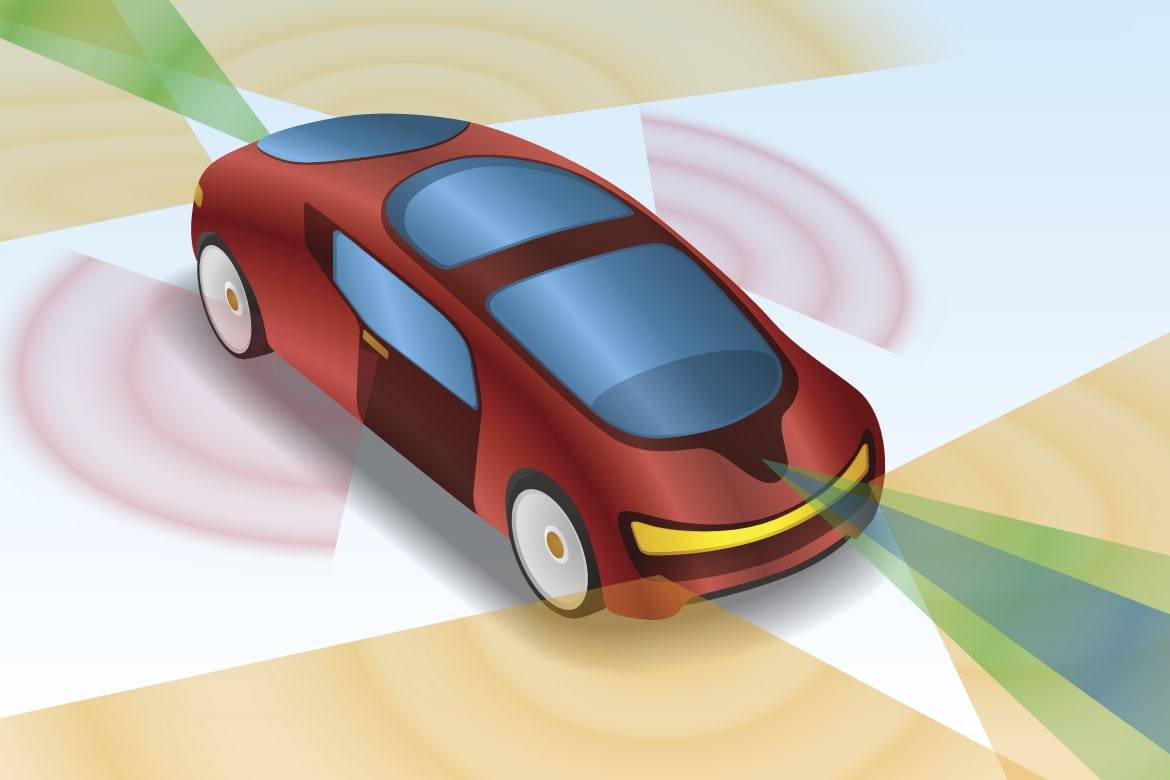The Cars Connection: Toyota, Microsoft Forge Alliance

CARS.COM — Microsoft and Toyota, two titans of their respective industries, are joining together to make the “connected car” much more than a sci-fi pipe dream or, at worst, mere marketing jargon. This patent licensing agreement further strengthens the business bonds between the Japanese automaker and American tech giant.
Related: Connected Cars Show Promise at CES 2017
The move is another important step for Toyota’s ongoing research into connected car technology, a field that could make transporting you from Point A to Point B only one of many functions your future car will be able to perform.
Why Should I Care? Imagine if your car could perceive that you needed medical attention, simply by reading your pulse via sensors in the steering wheel. Toyota has thought about this already, as part of a new offshoot company called Toyota Connected. When many people think of connected vehicles, they automatically assume it will be primarily related to quicker navigation, finding that ideal route around heavy traffic and construction sites.
While that’s obviously a key benefit, the fact is your car could play a role in aspects of your life you’ve never considered. Imagine having your vehicle confirm and book meeting times or appointments, or having your future car or truck recommend local attractions or restaurants, all based upon your driving and browsing history. Microsoft and Toyota want to work together to bring these advancements, and others, closer to reality — hopefully minus clunky interfaces that could prove a distraction and potential safety hazard.
Uber Self-Driving Cars Back on Road After Arizona Crash
Uber temporarily suspended all its self-driving car programs following a serious accident in Tempe, Ariz., that left one of the ride-hail company’s test vehicles, a Volvo XC90 SUV, badly damaged and laying on its side. At least two other vehicles were also involved in the crash and, according to this report in Reuters, the Volvo had been operating in self-drive mode when the accident occurred. Two Uber engineers were in the Volvo, though no serious injuries were reported.
In response, Uber opted to err on the side of caution and ceased its self-drive car testing programs in Arizona, as well as in San Francisco and Pittsburgh. By Monday morning, however, the San Francisco testing operations were back on the road, conducting mapping data surveys and analysis.
Why Should I Care? In this instance, the good news for Uber — other than everyone being relatively unscathed — is that the root cause of the crash was old-fashioned human error. One of the other cars hit the Uber vehicle, causing the battered Volvo to end up on its side in the roadway.
So, yes, Uber is out one expensive Volvo SUV that’s covered in expensive sensors and loaded with high-tech software. But the company almost certainly breathed a huge sigh of relief, at least once it became clear a carbon-based life form, not a computer, was the culprit. That should ease early concerns that the self-driving car had somehow gone haywire, or completely miscalculated a driving scenario. When someone screws up and hits you, even the smartest computer can’t always avoid a messy result.
California Vs. Trump and the EPA
That headline just above might happen sooner rather than later, based on the California Air Resource Board’s decision to maintain stricter emissions standards due to take full effect in 2025. The automotive industry, which originally hailed this legislation along with similar measures aimed at significantly boosting fuel economy, has now almost unanimously cozied up to a Trump administration that wants to loosen emissions regulations. Car companies claim these upcoming emissions rules would impinge profits and force them to sell smaller, more fuel-efficient cars, or zero emission electric vehicles, that no one wants to buy while gas is cheap.
The clash between CARB and the Trump White House and newly conservative-led EPA, could lead to “full out war,” stated Ann Carlson, an environmental law professor at UCLA, who was quoted in this L.A. Times report about this simmering battle.
Why Should I Care? The better question might be this: How can you not care about something as big-picture as this? Car companies, flush with strong sales and high profits, are suddenly incapable of translating this recent streak of good fortune into smarter, more efficient vehicles. Gas is cheap, people want larger SUVs and crossovers. Case closed, right? While SUVs are big money earners, it’s also a fact that vehicle emissions play a major role in greenhouse gases and — unless you’re a die-hard climate skeptic — the continued rise of temperatures around the world.
CARB has been going its own route for decades now, and a Trump administration could only embolden it to maintain this course with extra rigor. California’s emissions regulations go beyond state lines, with 12 states presently adopting the same standards set by CARB. This means any potential lawsuit could be extremely complicated, and involve numerous states and regulatory bodies. Right now, however, the ball is in the court of the Trump administration — a group that likes to give orders, not take them. Chances are high that an emissions war is in the making.
Featured stories




